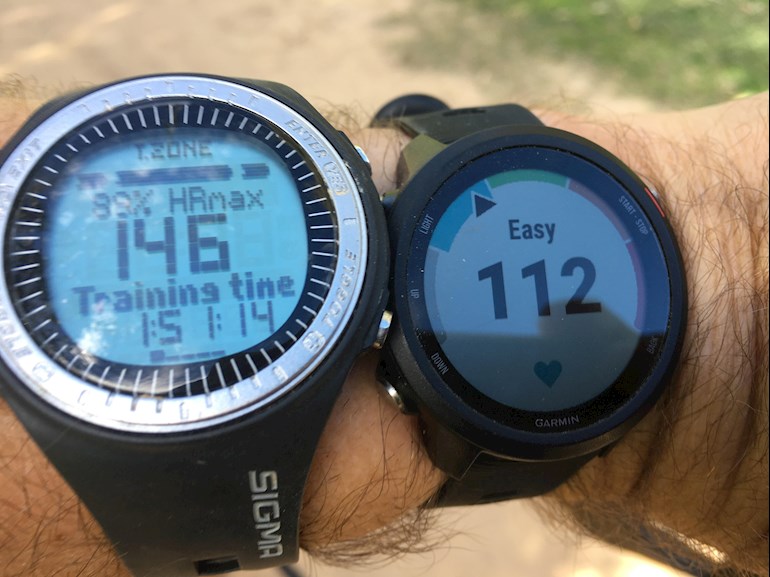Hi, wondering if any other runners/cyclists that have hrm sports watches and hrm chest straps experience wide results during activities (not at rest).
Im aged 56 and have AFIB 24*7 with very minor symptoms. On 40mg Sotalol twice daily.
I have a Garmin Forerunner 245 sports watch - it measures heart rate, but I bought a ‘garmin pro’ chest strap to get close to ecg accuracy as claimed due to AFIB diagnosis.
However, during a run my watch heart rate using pulsing light on the wrist as a measure records 114 bpm, but put the chest strap on and it says 148 bpm. The run is easy, my max heart rate is 164 for my age and I felt fine as if doing nothing. I took many other readings and the chest strap ALWAYS reads >30+bpm higher during exercise.
I tried a seperate 12 year old chest strap and watch display I had, and it also over reads by the same magnitude also compared to the modern Garmin watch wrist hrm (via light pulse).
The only reasoning I can use, is AFIB is an electrical problem, so maybe the heart chest straps dont cope with heart ‘misfires’ in their algorithms, wheras the garmin watch on the wrists measures changes in blood flow as bpm - nothing ‘electrical’ about it.
Can anyone comment on their experiences?
Thanks in advance.
